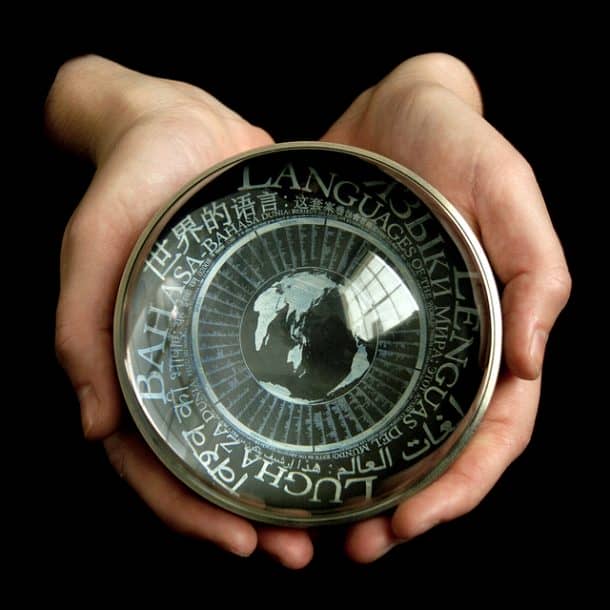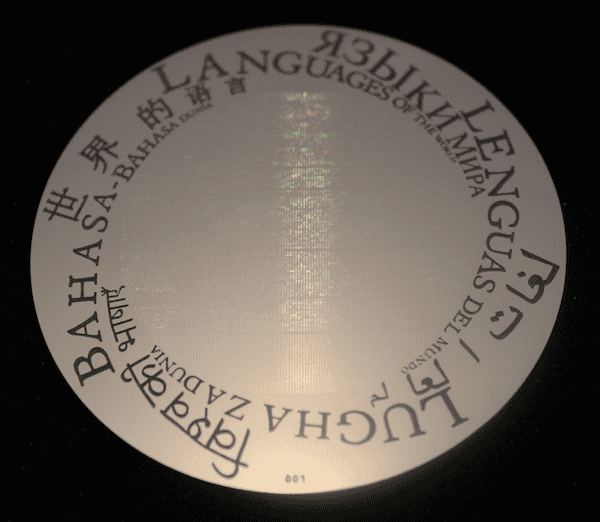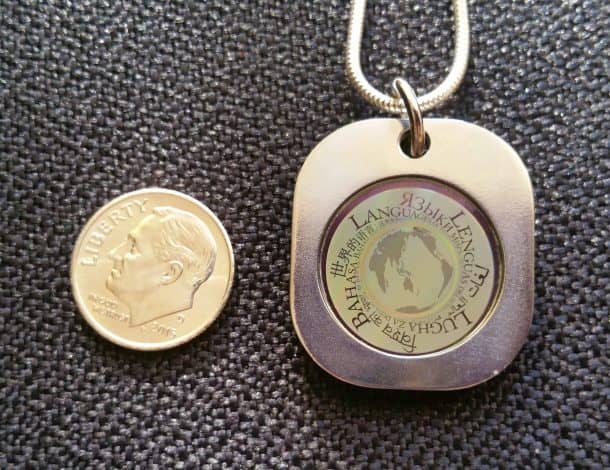Language is not just a medium of communication, it is a crucial piece of culture with the story of its speakers embedded in it. According to the Ethnologue catalog of world languages, there are a total of 7,099 known living languages in the world. All the content available in these languages, may it be movies, literature, or even jokes, give an insight about the people who speak that particular language.
Have you ever considered what would happen if your language suddenly disappears? If English is the language, it might be hard to imagine such a thing could happen, but some researchers have estimated that half of the world’s languages will disappear in the next century. A lot of these languages do not have more than a handful of native speakers remaining. For the sake of history and study, a team is preparing to preserve all these languages.

The Rosetta Project team at Long Now Foundation aims to use technology to preserve over 1,500 diverse languages of the world in a nickel disk. The disk is small enough to fit in the palm of the hand and contains 13,000 pages of microscopic information etched onto the surface. Instead of picking the influential poems and documents from a language, the team creates a key for each language that can be used to understand the language in lost documents, even after thousands of years!
On one side of the disk is a graphic teaser of the language which begins at a readable size and spirals into a microscopic print. The data is preserved on the other side of the disk. The idea is to protect information permanently and not in destroyable bits, so the humans can later read it by magnification.

The idea for Rosetta Project sprang from the Rosetta Stone that was discovered by the French Forces in 1799. The stone is said to be created in 196 BC for understanding the ancient Egyptian hieroglyphics. The stone has been kept in a British Museum since 1802, after the British defeated the French armies.
If you are interested in wearing the disk around your neck, the Long Now Foundation offers the Rosetta Wearable Disk in the size of a pendant. It will cost you $US 1,000, but it is considered as a ‘donation to the project’.



